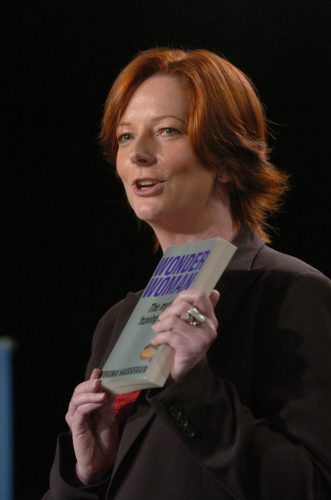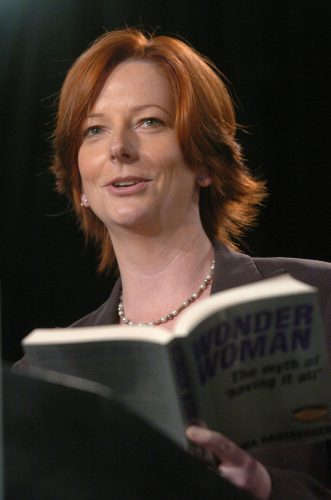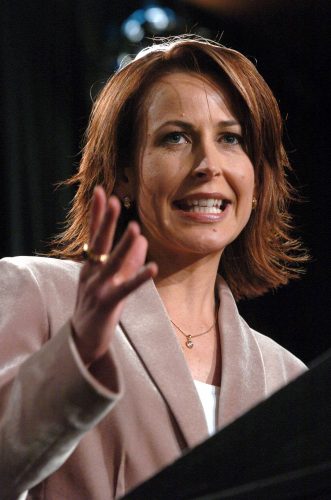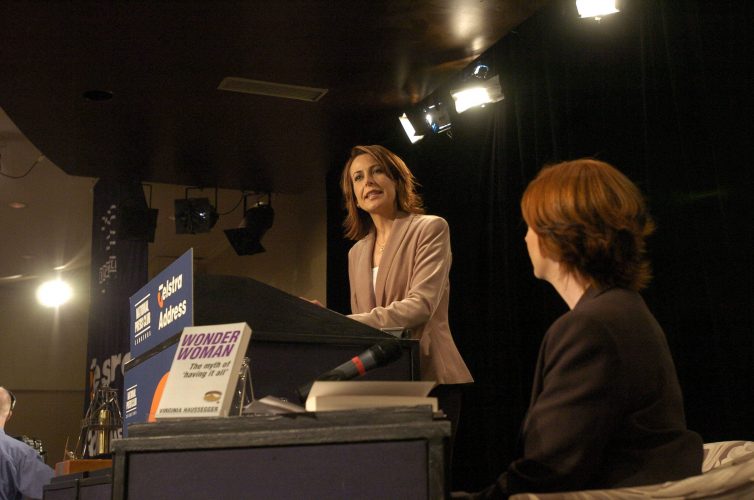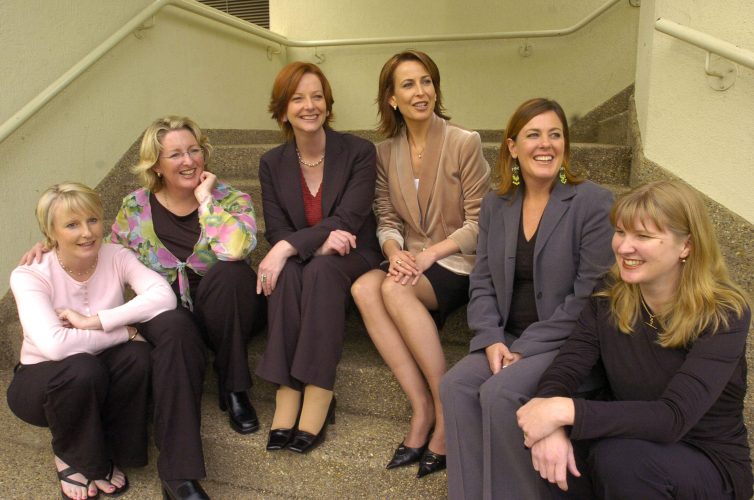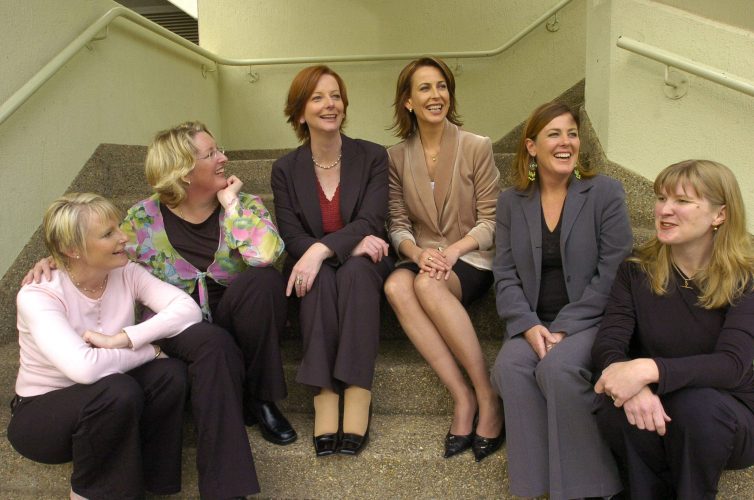Did France’s leading presidential aspirant take a leaf out of Jon Stanhope’s book? If you’ve got a good body, strip down to ”minimal attire” – as the French quaintly put it – and flaunt it.
Admittedly Jon whipped his clothes off to help save a drowning man’s life. Whereas, France’s political darling, Segolene Royal, stripped down to her bikini – simply to take a swim.
But is it possible Madame Royal – who just over a week ago won the French Socialist Party’s nomination for President – knew that the paparazzi with the long photo lenses were lurking? Was she complicit in allowing all of France to check her out in her curvaceous and sexy bathing glory, looking every bit like ”a star on holiday” as Le Parisien reported it?
Non, absolutely not, cried Royal’s supporters, her detractors, and even the mainstream media. It was, they said, a ”sulphurous” breach of privacy.
How odd. In a place where openly eyeing off beautiful women is a national pastime, why the fuss over a few bikini snaps?
Well possibly because it’s a first for France. Never before has a woman come this close to the presidency. And no leading candidate has ever had the sexual advantage now flaunted by Segolene Royal. This is new terrain. Fortunately for Royal she’s got a good head for policy, as well as a great body for promenading.
The magazine that published the illicit shots bannered the story, ”Who would guess that this willowy woman is 53 and has four children?” The editor said she expected to be sued, given France’s strict privacy laws. But hey, it was worth it. The cover girl, would-be president, looked so delicious, so enticing and so feminine.
Interestingly, Royal didn’t sue. According to those close to her campaign, the usually unflappable Mme Royal was nevertheless furious. She rang a female political confidant who apparently calmed her down with a gentle, ”Don’t worry, you looked fabulous”.
”I think it worked in her favour,” says Francophile and professor of history at Melbourne University, Charles Sowerwine. ”If she looked dumpy or dowdy in her bikini, that may have hurt her. But instead, it added to her glamour.”
Despite boasting one female Prime Minister – although short-reigned – and parity laws which instruct political parties to run equal numbers of men and women in winnable seats, France is still not accustomed to seeing women in key positions of power.
Even a year ago, Royal was far from being a frontrunner in the presidential race. In fact, for a while it looked like her partner and father of her four children, Francois Holland, had a better chance of winning the Socialist party’s nomination. As first secretary of the Socialists, Holland had plenty of party support. But during a tremendously successful campaign, Segolene managed to garner a huge swathe of public support.
Charles Sowerwine, who recently returned from a study period in France, says, ”When I was in Paris, I met many women who said they had signed up to the Socialist party specifically so that they could nominate Segolene Royal for President.” It is estimated between 60,000 to 80,000 women joined the party between April and September. The new recruits formed an influential chunk of the 220,000 Socialist party members who voted Royal as their candidate in next year’s presidential election, to replace the outgoing Jacques Chirac.
Sowerwine rates her chances as 60/40, if she is pitted against the right wing conservative candidate Nicolas Sarkozy – as is most likely. Opinion polls are even more optimistic.
But to get this far, Royal has had to tackle some serious sexism – from within her own party. After one public debate, a colleagues said ”she would have done better to stay at home instead of reading out from her recipe cards”. Another asked, ”Who will look after the children?” if she becomes President.
Sowerwine, who watched all this at close quarters, says none of the overt sexism stuck. In fact, quite the reverse. Royal’s most patronising critics are increasingly seen as ”old guard” – a point Royal drives home by referring to them as ”elephants”.
Far from playing it like a bloke, Royal’s gender has been her most powerful point of difference. ”She is not coming on as a woman who threatens the masculine system”, Sowerwine says. ”She is coming on as a woman who has done all the right things, such as be a mother and a long-time partner. She is not a threat.”
Royal has been dismissed by her critics as a lightweight, and not sufficiently focused on foreign policy and international agendas. Instead her gaze has been deliberately domestic. With a ministerial background in education, and specific interests in women’s rights and health issues, Royal has proven a strong commitment to what she calls ”participative democracy” and ”collective intelligence”. She has made a virtue of listening. ”Politics must be based on the realities of people’s lives,” she says. ”It must be attentive to the lessons of the people.” Far from taking a ”father knows best” position, Royal gives the impression of motherly concern and care, along with the ability to take control, tidy up and get things done.
Motherly maybe, but certainly not matronly. In French public life elegance is mandatory. ”They have an obligation to look good”, ANU sociologist Rachael Bloul says, in her heavy French accent. The focus on physical attributes according to Bloul is simply French, and simply natural. ”No French would vote for someone who doesn’t look good,” she says, ”because they are representing France.”
But, of course.
